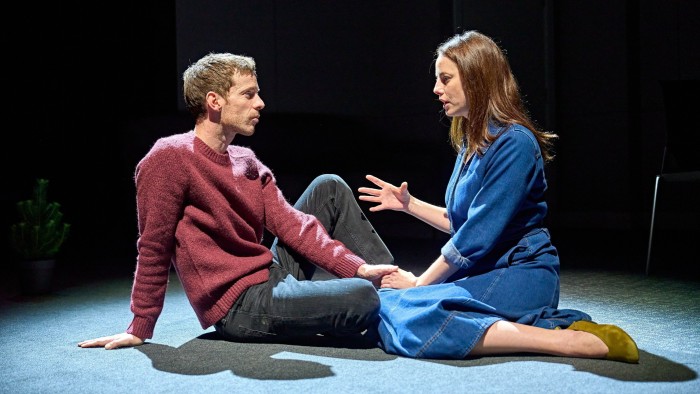Summarize this content to 2000 words in 6 paragraphs in Arabic Unlock the Editor’s Digest for freeRoula Khalaf, Editor of the FT, selects her favourite stories in this weekly newsletter.There’s nothing remarkable about the grey, carpeted interview room in which East Is South is set. Nothing, that is, except the curious metal ring protruding from the table. What’s it for, Lena, a young coder, enquires of the woman sitting opposite her? “Don’t worry about that,” she replies. Handcuffs, it turns out. And Lena should be worried. Beau Willimon’s new drama is set in a secret facility dedicated to developing a powerful self-educating AI that looks set to outstrip human intelligence and possibly become sentient. But it appears that Lena and her colleague (and lover) Sasha, two programmers brought in to work on the “kill-code” that would halt it if it ever escaped, may have overridden the system and “liberated” the AI onto the internet. Ungoverned, who knows what it might do. So we’re in a cat and mouse game between Lena, Sasha and two National Security Agency operatives — Samira (good cop) and Tom (bad cop).Willimon has a great writing pedigree — he created the US version of House of Cards, for example — but this new piece is a curious, stubbornly inert beast: part police procedural, part philosophical enquiry. It’s packed with fascinating debates about AI, consciousness, the divine, meaning, paradox — and about our instinct to anthropomorphise entities beyond our understanding. Questions swirl and bubble. Would a super-consciousness be a threat to humanity or a saviour? Does it matter?“Maybe biological evolution is just the precursor to technological evolution, right?” says Lena at one point. “What if this? God didn’t create the universe. It’s the universe’s project to create God.”The trouble is, these richly interesting ideas come packaged in dense flashbacks, digressions and break-out scenes, weighty with debate and jargon, that hold up progress in the plot. Tension keeps dissipating and Willimon’s very smart use of a thriller format to express the momentous point we have reached keeps getting bogged down.His characters neatly embody ideas and contradictions, not least the urge to believe in something bigger than ourselves and the way lived experience and emotions impact our thinking. Lena (Kaya Scodelario) grew up in a strict Mennonite community and is clearly haunted by both her traumatic personal life and the loss of a defining belief; Sasha (Luke Treadaway) is a Russian dissident who gave up piano when he realised he couldn’t be perfect and who plays Bach’s Toccata and Fugue in D Minor to Lena as an example of reaching for the divine. Their interrogator Samira (Nathalie Armin) is of Sufi heritage and project manager Ari (Cliff Curtis) a complex mix of Jewish and Māori. The desire for meaning is common to all of them — except perhaps Tom (Alec Newman) who mainly believes in not quitting.But despite strong performances in Ellen McDougall’s production, with Scodelario and Treadaway in particular bringing a mix of wariness, defiance and intense vulnerability to Lena and Sasha, they struggle to achieve real definition. So much potential here and such an important subject, but sadly the play feels as though it got stuck in “loading” mode.★★☆☆☆To March 15, hampsteadtheatre.com
رائح الآن
rewrite this title in Arabic East Is South theatre review — techno-thriller asks big questions about AI
مال واعمال
مواضيع رائجة
النشرة البريدية
اشترك للحصول على اخر الأخبار لحظة بلحظة الى بريدك الإلكتروني.
© 2026 جلوب تايم لاين. جميع الحقوق محفوظة.









